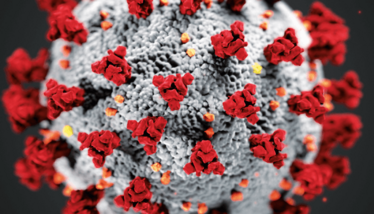Protecting the Vulnerable
How do COVID-19 vaccines impact at-risk patients?

Worldwide COVID-19 vaccinations have begun, but how effective will they be for at-risk groups, such as immunocompromised patients? Researchers from several British academic institutions have launched a trial, OCTAVE, to better understand how current iterations of COVID-19 vaccines will impact vulnerable populations (1).
According to Pam Kearns, Professor of Clinical Paediatric Oncology at the University of Birmingham, and Director of both the Cancer Research UK Clinical Trials Unit and the Institute of Cancer and Genomic Sciences, studies over the last 12 months have shown wide variation in immunocompromised patients’ responses to COVID-19. These patients’ vulnerability to the virus increases the importance of vaccination, but their conditions also make them more likely to exhibit altered immune responses to the vaccines.
“Their response to the virus can be attributed to their underlying disease, its associated immune dysregulation, or their use of immune-modifying medications,” Kearns says. “Trials that evaluated the efficacy of the SARS-CoV-2 vaccines predominantly recruit individuals without chronic diseases. Therefore, we do not know the effectiveness of the immune response and its durability in patients with impaired immune systems.”
Through the OCTAVE trial, the collaborative team will evaluate immune responses to COVID-19 vaccines, including the BioNTech/Pfizer, Oxford/AstraZeneca, and Moderna vaccines. The team aims to recruit unvaccinated patients, as well as those who have received their first dose and who live with end-stage kidney disease, liver disease, some forms of cancer, immune-mediated rheumatic diseases, or a history of solid organ transplant.
The team is not short of volunteers. “Trial inboxes have been inundated with hundreds of messages from patients highly committed to helping us find the answers to our questions. Though not all are eligible, we aim to disseminate our results to inform the wider public as soon as they are available,” says Kearns.
- University of Birmingham (2021). Available at: https://bit.ly/3vTvTyB.
After finishing my degree, I envisioned a career in science communications. However, life took an unexpected turn and I ended up teaching abroad. Though the experience was amazing and I learned a great deal from it, I jumped at the opportunity to work for Texere. I'm excited to see where this new journey takes me!



















